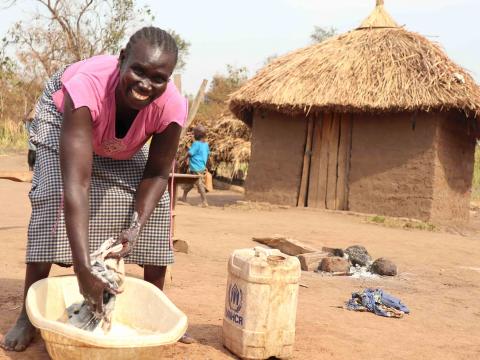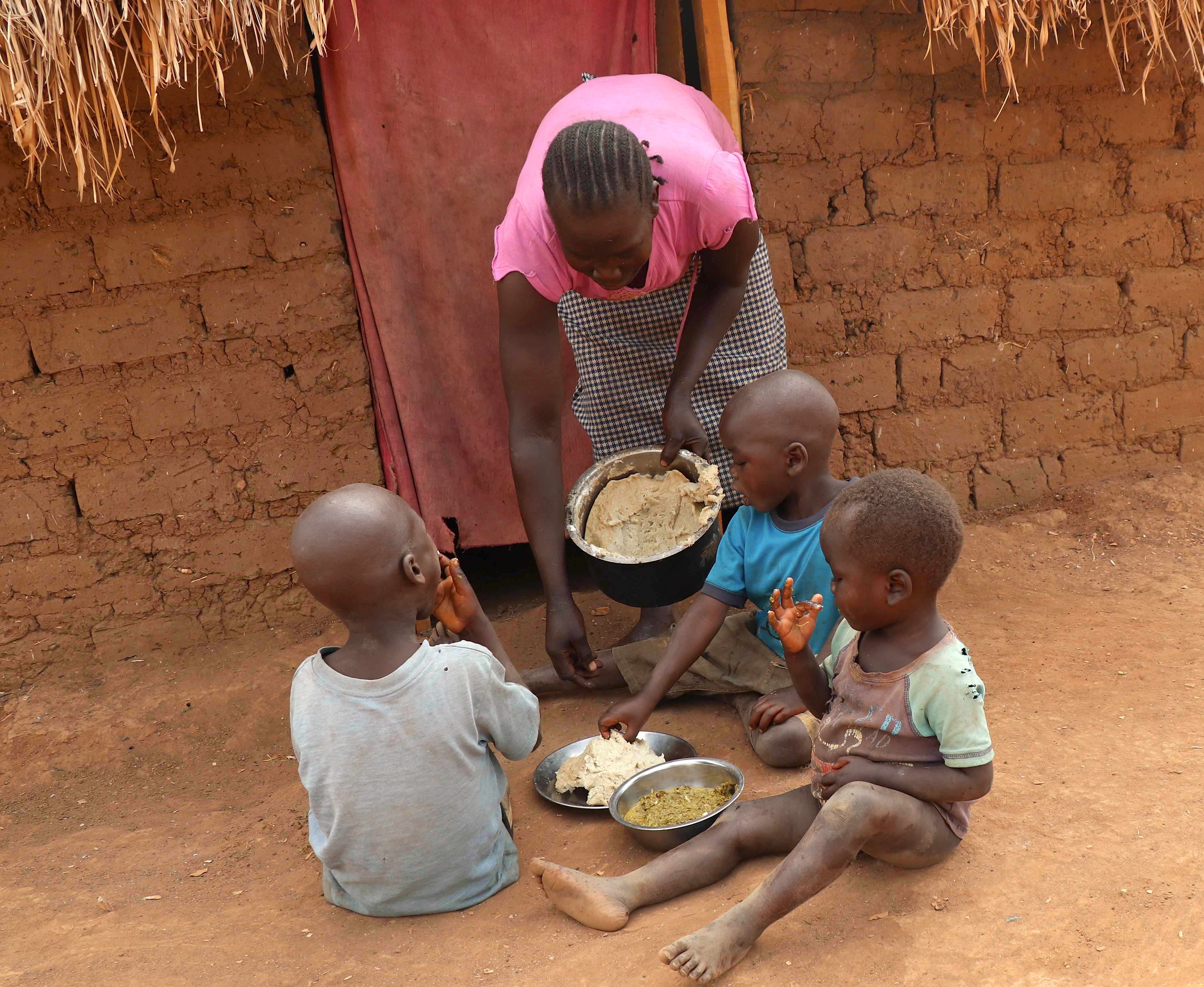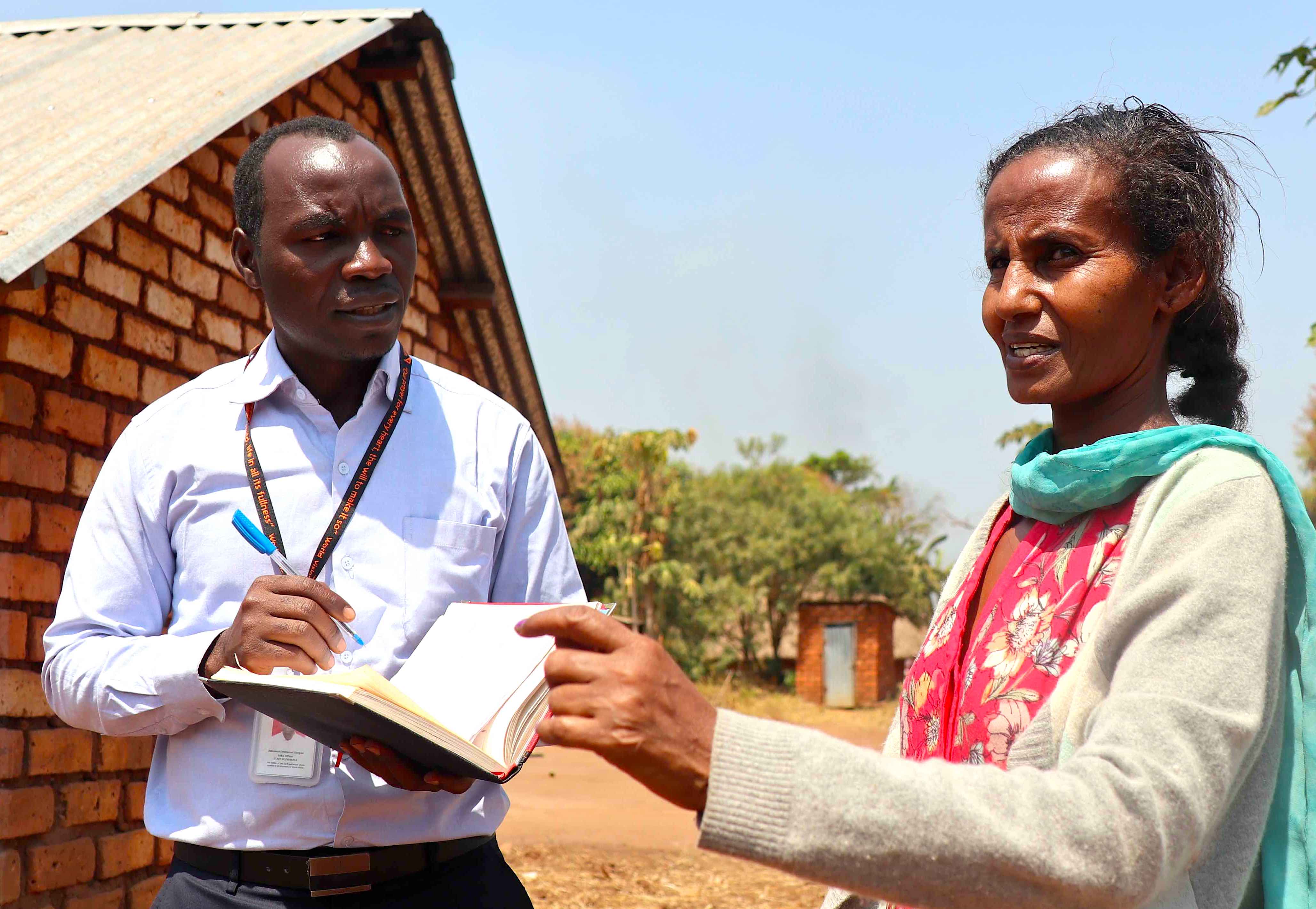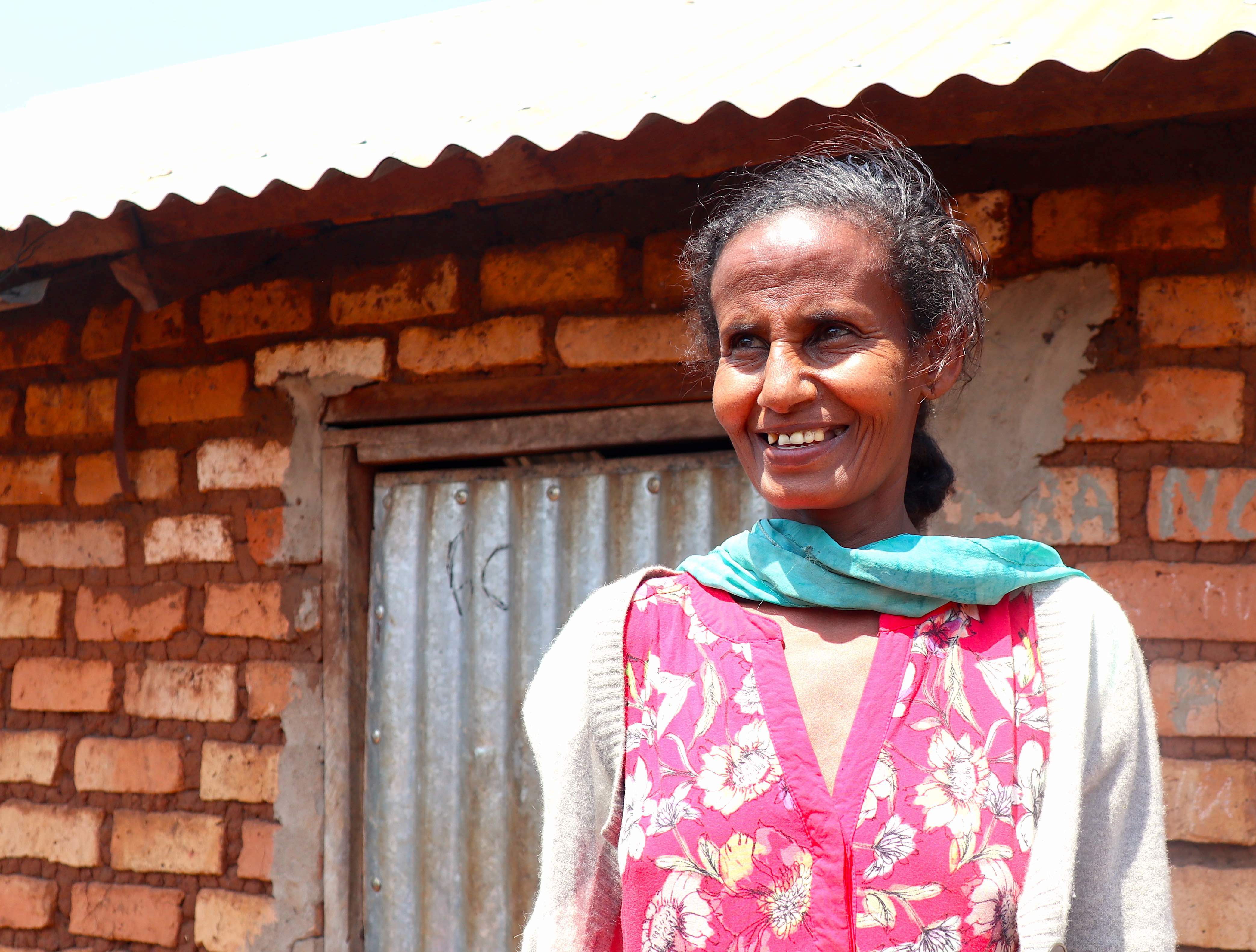Fleeing from conflict, these mothers in South Sudan’s refugee camp worry of the future amid COVID-19

“My greatest fear from COVID-19 is for my children”, says 42-year old Alawia Simon, a mother of 11 and a refugee from Sudan.
She adds, “This coronavirus is a complicated disease and a threat to children because they go out and play with each other. Most of their games involve body contact which I often cannot control when I am out working the farm. It scares me.”
Alawia crossed and sought refuge to South Sudan in 2017 following the conflict that broke out between different forces in Nuba Mountain, Sudan. “I got separated from my 8-year old son who took the animals for grazing.”
Related story: From DR Congo to South Sudan, single mother endures the odds

Together with her family, Alawia recalled traveled from Sudan to South Sudan’s Makpandu Refugee Camp. She adds, “We rode the cargo vehicles and traveled for a month and 14 days.”
To survive, Alawia did odd jobs at every place they reached feed the children and be able to move to the next destination. She recalls, “In some places, we were driven away when we camped with my children for even a night.”
The absence of a father and husband in our house greatly affected the family. The food assistance, health services, education for children in the camp were interrupted by COVID-19 but I have hopes that this will pass.
Just like the majority of refugee women in Makpandu Refugee Camp, Alawia also lost touch with her husband who was a soldier when the conflict broke out in her village. She laments sadly, “I do not know if he is still alive. I live alone with the children but I keep assuring them he will join us one day.”
Alawia and her children reside on a patch of land given to her in the settlement. With help from neighbors, she is able to build a makeshift grass-thatched home for the family.
Watch video: Strengthening resilience through livelihoods in South Sudan

“The absence of a father and husband in our house greatly affected the family. The food assistance, health services, education for children in the camp were interrupted by COVID-19 but I have hopes that this will pass”, Alawia explains.
Just next-door is Azeb Giyohannes from Eritrea. “My husband was shot during the conflict in Eritrea. My son Abel Stephanou and I fled the country due to forceful recruitment of armed groups, abductions, and rampant killings.”
Read blog: Thriving strong and finding courage amid COVID-19

Amid COVID-19, Azeb struggled to keep her son safe from contracting the virus. “We left our country was to find safety and food. I am scared of COVID-19 but because World Vision has raised awareness in the camp, I feel better”, Azeb adds.
In partnership, with UNHCR, World Vision has provided water, sanitation and hygiene facilities such as hand washing buckets, tippy taps, soap, hand sanitizers, and enough water supplies in strategic areas around the camp with 19 health staff assigned to increase monitoring and promote awareness, screening and inspection of new entrants.
Watch video: World Vision's #hiddenhero in the frontline
Story and photos by Scovia Faida Charles Duku, Communications Officer